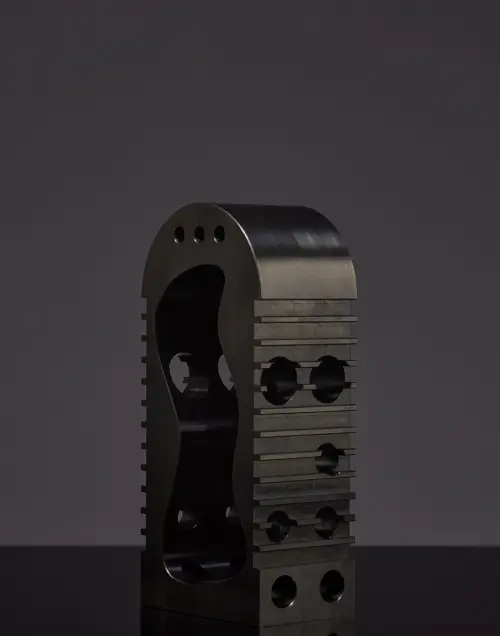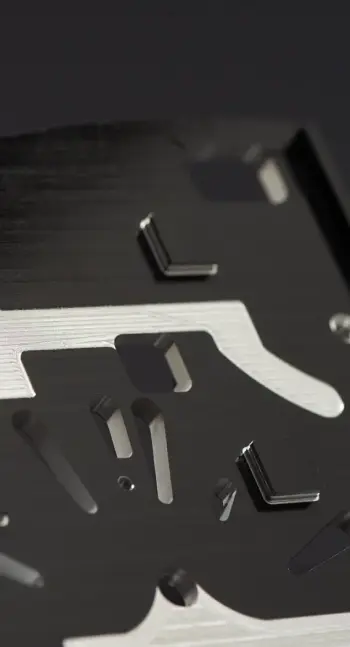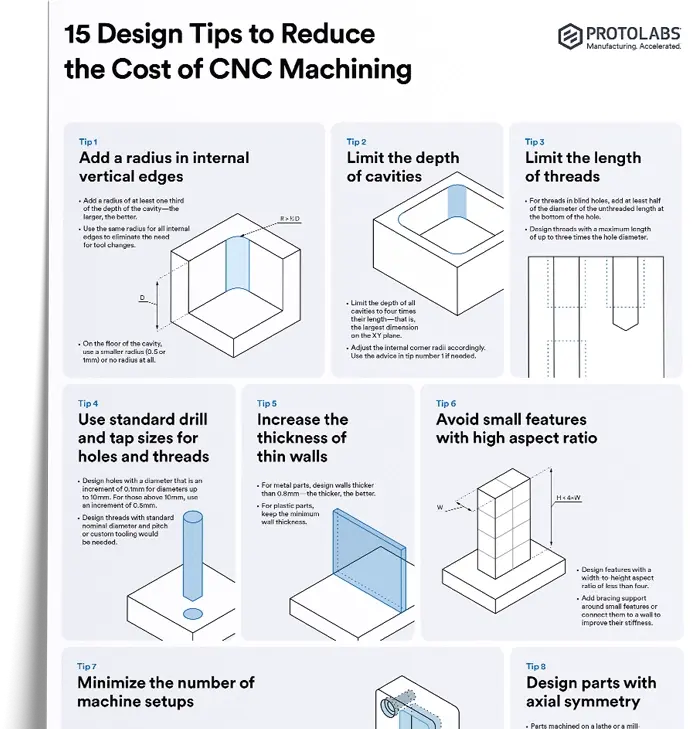Defining digital manufacturing
Digital manufacturing refers to the integration of digital technologies into manufacturing processes. The rise of Industry 4.0 – which revolves around technological developments in the manufacturing industry – has increased the importance of digital manufacturing, giving it a key role in developing more connected, efficient, and automated manufacturing processes.
Essentially any industry can benefit from digital manufacturing, as it looks to streamline and optimize the entire manufacturing process – no matter what types of parts and products it deals with.
How does digital manufacturing work?
Manufacturing can be digitalized using technologies that design, simulate, and optimize production and supply chain processes. There are three key areas of digital manufacturing: product lifecycles, smart factories, and value chain management.
Product lifecycles
In digital manufacturing, the product lifecycle focuses on creating a product that is more efficient and effective at a reduced cost. To do so, digital models are created. These are typically designed using computer-aided design (CAD) or similar software, and act as a blueprint for a future, physical part.
Digital designs are modified, iterated upon, and optimized until they are suitable for a given application. Models can also be used in simulations of actual manufacturing environments, giving engineers and designers insights into exactly how a part will function in reality.
Smart factories
Smart factories use technology to optimize manufacturing processes. In smart factories, Internet of Things-enabled (IoT) sensors and smart machines – often guided or run by robots – are able to streamline workflows and reduce the need for human labor.
Technologies integrated into smart factories offer real-time information and feedback regarding manufacturing processes, enabling organizations to cut costs while improving overall efficiency, productivity, and quality control.
Value chain management
Value chain management refers to ways in which a product’s value can be increased or improved as it moves along the supply chain – from sourcing raw materials to manufacturing, distribution, marketing, and after-sales service.
Digital manufacturing can benefit the value chain by reducing costs, improving quality, and increasing efficiency at every stage of the process. Design and simulation tools, for example, can help engineers create more effective products and reduce the time and cost of prototyping.
Integrating an online platform like Protolabs Network into your part sourcing is another example of digitally optimizing your supply chain. Whereas traditional manufacturing involves sending a request for quote (RFQ) to several manufacturers to investigate their pricing and availability, Protolabs Network's quote builder uses an algorithm that matches your order with the ideal manufacturer based on millions of data points. By saving companies the effort of shopping around for the right solution to produce their parts, Protolabs Network's platform allows for greater efficiency and faster innovation.
The benefits of digital manufacturing
Digital manufacturing provides benefits to every stage of the manufacturing process, from design to delivery. In short, it helps companies to reduce costs, improve efficiency and product quality, and stay competitive in a quickly evolving industry. Digital manufacturing can lead to increased or improved:
-
Efficiency. By automating formerly manual processes such as assembly, or inventory management – and providing real-time monitoring and analytics, allowing manufacturers to identify and address issues before they occur – digital manufacturing increases productivity, production speed, and reduced waste, resulting in improved overall efficiency.
-
Flexibility. Digital manufacturing enables organizations to quickly adapt to changes in demand, product design, and production processes. This enables them to quickly and efficiently produce custom or specialized products while reducing lead times and costs.
-
Collaboration. With digital manufacturing, the entire manufacturing process is seamlessly connected. This encourages and enables collaboration between teams, departments, and organizations, resulting in innovation and faster product development.
-
Safety. By automating processes – especially those that are repetitive or dangerous – digital manufacturing results in less risk of human injury.
-
Sustainability. Digital manufacturing can reduce waste, energy consumption, and carbon emissions by optimizing workflows and processes. This makes it a more sustainable option for manufacturers.
Technologies used in digital manufacturing
The advanced technologies used in digital manufacturing result in increased safety, efficiency, efficacy, and speed of manufacturing processes.
-
Computer-Aided Design (CAD). Using CAD, engineers or designers create 2D or 3D models of products. These digital prototypes can be refined, tested, and iterated upon before production begins – resulting in increased success of finished parts.
-
Computer-Aided Manufacturing (CAM). CAM software converts a digital design created using CAD software and converts it into instructions for automated machinery, which can then create a highly complex part with high degrees of accuracy.
-
Additive manufacturing. Also known as 3D printing, additive manufacturing builds parts layer by layer, typically using plastic or plastic composite filament. Additive manufacturing enables engineers or designers to create complex shapes and structures that would be difficult or impossible using traditional manufacturing methods.
-
Robotics. Digital manufacturing often uses robotics to perform tasks such as assembly or material handling. Because they work quickly and precisely – and often don’t require human intervention – robotics improved efficiency, safety, and labor costs.
-
Automation. Automated systems can perform tasks such as inventory management, quality control, and machine maintenance, improving productivity and reducing errors.
Design for manufacturability (DFM). All parts that are uploaded to Protolabs Network for quoting go through automatic DFM analysis. This review process identifies potential manufacturing challenges before production begins. It’s an important advantage of digital manufacturing, as it prevents potentially expensive design issues before they arise.
Frequently asked questions
What is digital manufacturing?
Digital manufacturing refers to the integration of digital technologies or computer systems into manufacturing processes.
What are the key aspects of digital manufacturing?
Digital manufacturing focuses on optimizing and improving product lifecycles, smart factories, and value chain management.
What are the benefits of digital manufacturing?
The benefits of digital manufacturing include increased efficiency, productivity, and quality, as well as reduced costs and lead times.
What industries use digital manufacturing?
A diverse range of industries are incorporating digital manufacturing into their supply chains. Protolabs Network has manufacturing capabilities suitable for many different applications, and is increasingly working with aerospace, automotive, electronics, and healthcare organizations.
What technologies are used in digital manufacturing?
Technologies used in digital manufacturing include CAD and CAM software, robotics, 3D printing, and IoT-enabled sensors or devices.
Get started with digital manufacturing
To produce a part with digital manufacturing, upload a CAD file to receive a free quote and comprehensive DFM analysis.
You can learn more about digital manufacturing, including standards and technical data, or contact networksales@protolabs.com for personalized advice about your project.







